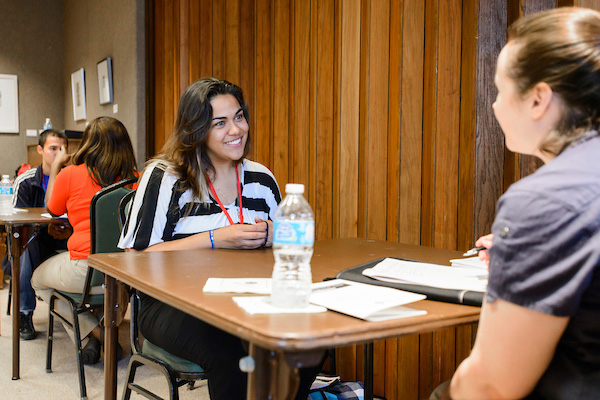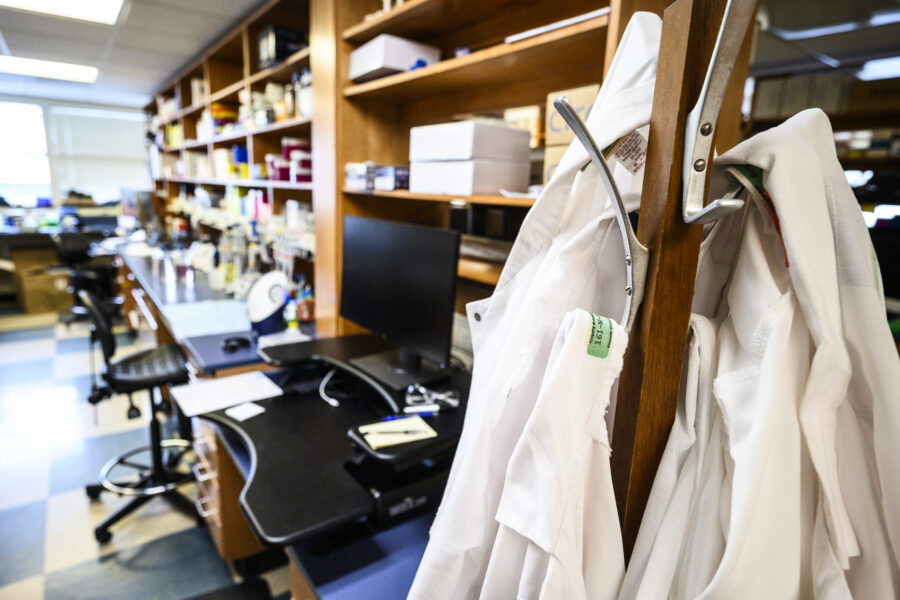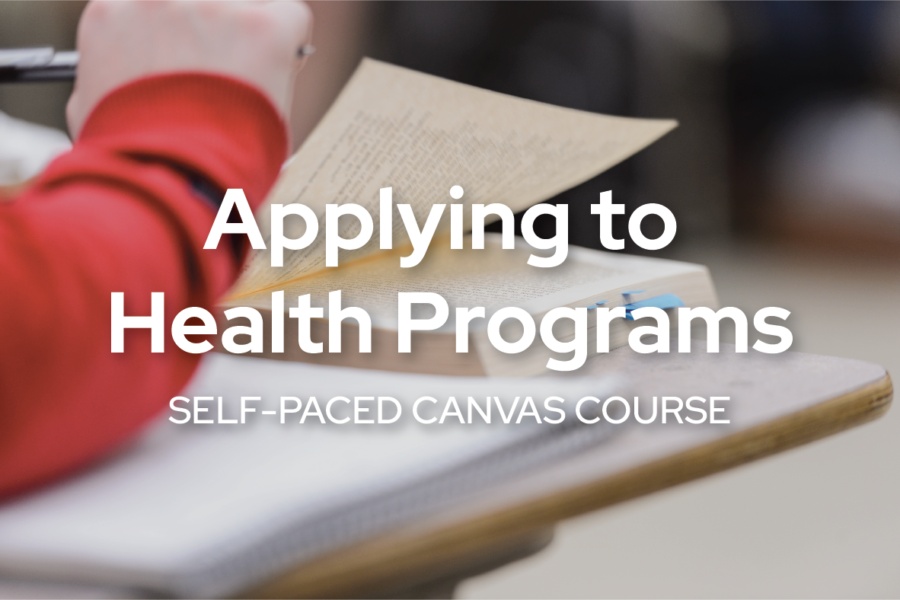About Athletic Training
Athletic Trainers (ATs) are healthcare professionals who collaborate with physicians to provide preventative services, emergency care, clinical diagnosis, therapeutic intervention and rehabilitation of injuries and medical conditions. (Commission on Accreditation of Athletic Training Education)
Work settings include educational settings (high schools, colleges, universities), hospital emergency departments, military bases, public safety (police and fire departments), occupational and industrial settings, care settings, performing arts, physician offices and hospitals, professional sports, and sports medicine clinics.
Athletic trainers may specialize in Injury and Illness Prevention/Wellness Promotion; Examination, Assessment and Diagnosis; Immediate and Emergency Care; Therapeutic Intervention; or Healthcare Administration and Professional Responsibility. (National Athletic Trainers’ Association).
Learn more about becoming an AT at ateachmoment.com.
Note: In addition to the resources below, we encourage you to connect directly with staff at UW’s Athletic Training program. While Athletic Training programs are not among CPHA’s primary areas of advising expertise, we are here to support you in exploring the career, building helpful experiences, and navigating some aspects of professional program applications. Talk with us if you have questions!
Master of Science in Athletic Training (MSAT)
The Professional Master’s degree in Athletic Training is a 2-year graduate degree. Some programs offer an accelerated undergraduate entry to the master’s program while others require a bachelor’s degree before applying.
After graduation, ATs will sit for the Board of Certification (BOC) Exam to practice in the U.S. Some ATs will pursue a doctoral degree or a residency or fellowship after graduate school to specialize in working with specific populations or conditions.
For the most up-to-date salary information, visit the U.S. Bureau of Labor Statistics website.
Explore Your Interest in Athletic Training
Shadowing & Informational Interviewing
An excellent way to explore your interest in AT is by observing providers. Shadowing ATs shows you what their day is like and how they work with patients and others within the healthcare team. Conduct informational interviews with ATs and ask them how athletic training has changed since the start of their practice.
Volunteering
AT programs look for applicants who demonstrate a sustained commitment to serving others. Learn more about opportunities to volunteer in clinical and non-clinical settings.
Jobs
Getting a job working alongside ATs is a great way to learn about the practical aspects of the field. Confirm that this work is something you enjoy!
Additional AT Shadowing Resources
Many AT programs require a specific amount of documented observation hours. Reach out to UW-Madison’s AT program to get connected with current students and alumni. Follow them on Instagram to see AT students and grads in action.
Finding a Program
CAATE Search for Accredited Programs
To learn more about UW-Madison’s AT program, visit the MSAT website or follow the program on Instagram.
Preparing for AT Programs
Requirements vary from school to school, so it’s always necessary to consult program websites. Find a list of programs via the links above.
Consider UW-Madison’s Athletic Healthcare Certificate to explore your interest in healthcare for active populations.
Pre-requisite courses may include:
AT Required Coursework
| Topic | Credits/Semesters | UW-Madison Courses |
|---|---|---|
| General Chemistry | 8-10 credits or 2 semesters | Choose one of the following sequences: Chemistry 103-104 Chemistry 109 |
| Biology | 5-10 credits | Choose one of the following sequences: Zoology 101-102 + an additional bioscience course Options include: Genetics, Microbiology, Cell Biology, Immunology Note: you may need to do an additional bio-science course with lab Biology 151-152 Biocore 381-382 AND 383-384 satisfies Intro to Bio requirements Biocore 485-486 Organismal Biology lecture/lab (Satisfies I/A bio) *Biocore: Students must apply to enroll in Biocore. For more information, visit the Biocore Website |
| Anatomy with lab | 4-5 credits | Anatomy & Physiology 337- lecture Anatomy & Physiology 338 - lab |
| Physiology with lab | 4-5 credits | Anatomy & Physiology 335 - lecture & lab |
| Physics | 8-10 credits | Choose one of the following sequences: Physics 103-104 (algebra-based) Physics 201-202 (calculus-based; intended for Engineering majors) Physics 207-208 (calculus-based; intended for Life Science majors) *If physics is required for your major, select the sequence recommended by your major. If physics is not required by your major, physics 103-104 is an appropriate choice. |
| Medical Terminology | 3 credits or one semester | Classics 205 |
| Psychology | 3 credits | Psych 202 |
| Statistics | 3 credits | Stats 301 Stats 371 Psych 210 A statistics course in your major |
| Other courses that may be recommended | Exercise Physiology (Kines 314) Nutrition Kinesiology CPR/AED/First Aid certification |
Some programs require the GRE. The module “Prepare for the GRE” on our “Applying to Health Professions” Canvas course has more information on study plans, resources, and tips for the GRE.
Application Process
Some, but not all accredited Athletic Training programs use the Athletic Training Centralized Application System (ATCAS) as a common application. Others will have you apply directly on their website. Applications typically open in June and final admissions deadlines vary by program but can be as late as June of the following year. Some programs review applications on a rolling basis, so it can be helpful to apply early.
The ATCAS Help Center shares more information about application components.
Read more about the ATCAS fee waiver program.
Some programs require the GRE. The module “Prepare for the GRE” on our “Applying to Health Professions” Canvas course has more information on study plans, resources, and tips for the GRE.
Enroll in Applying to Health Programs
CPHA runs a Canvas course called Applying to Health Programs, a non-credit course designed to help you with the process of applying to programs like AT programs.



